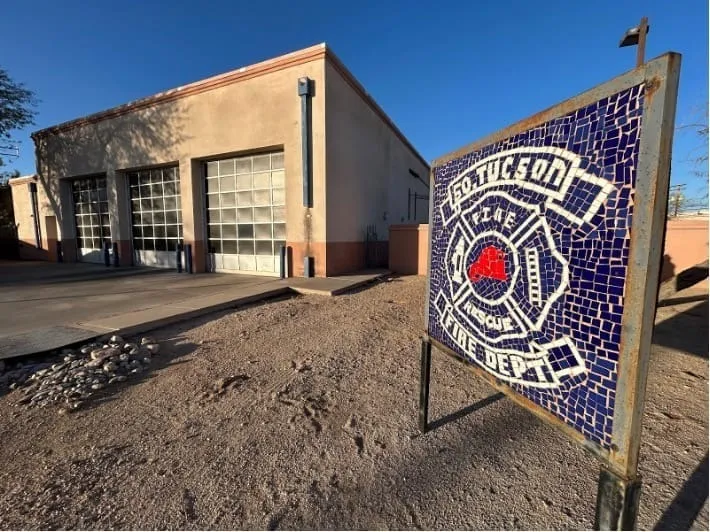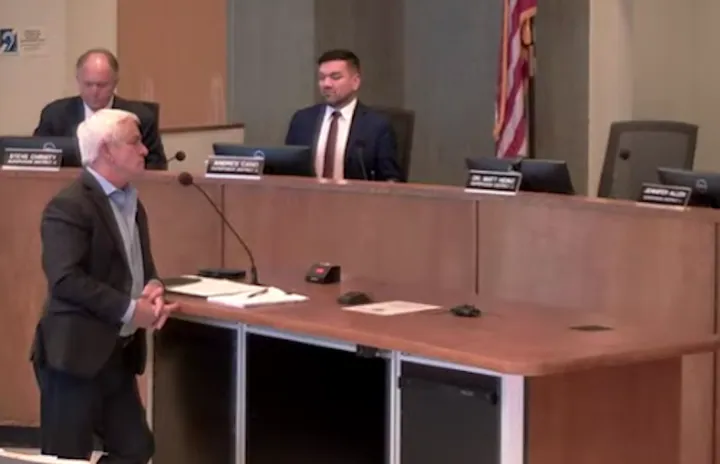Ansari blasts GOP budget during Tucson town hall
Congresswoman Yassamin Ansari held a town hall in Tucson to condemn the GOP’s budget bill, highlight its impacts on immigration and healthcare, and urge community action ahead of the 2026 elections.
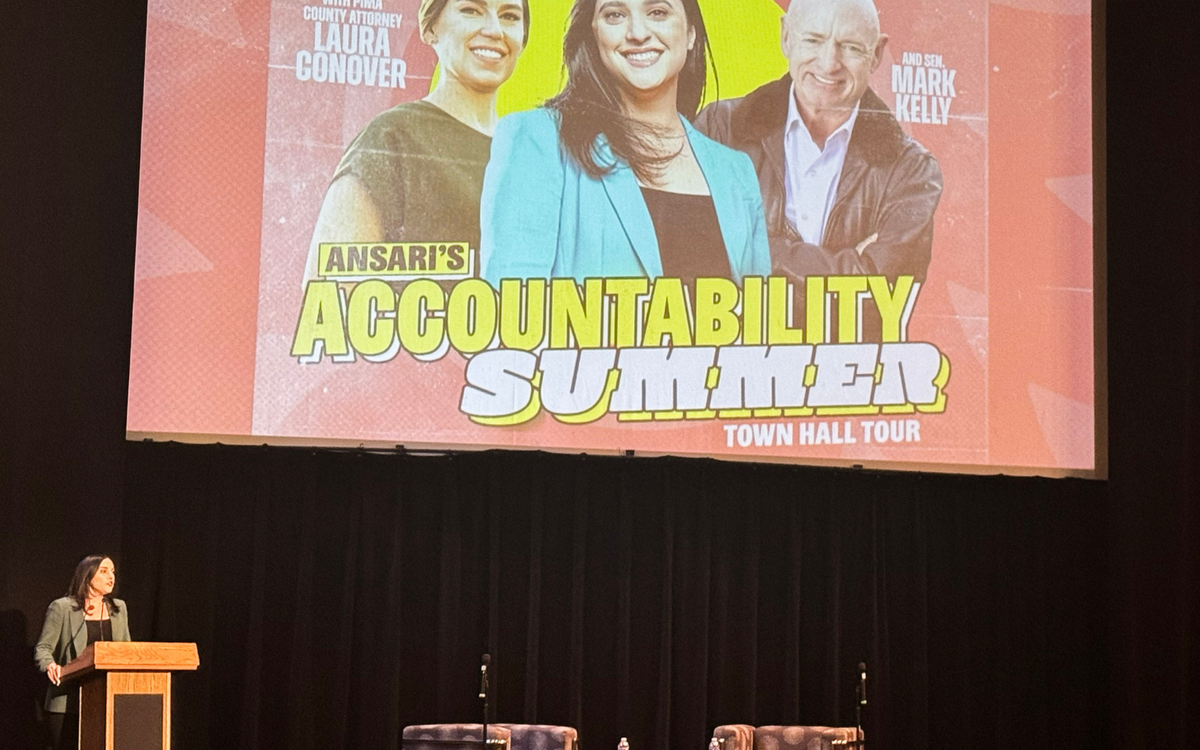
Congresswoman Yassamin Ansari visited Tucson Saturday for her “Accountability Summer” tour, using a town hall at Pima Community College to blast the GOP’s latest budget bill and Rep. Juan Ciscomani’s support of it.
The bill boosts funding for ICE and Homeland Security while slashing Medicaid, cuts condemned onstage by Ansari and Pima County Attorney Laura Conover, who spoke about the local impact on health care and public safety.
Protesters gathered outside Pima College, some criticizing Ansari for supporting aid to Gaza, others displaying signs along the sidewalk and in the parking lot.
Ansari kicked off the event by reflecting on the state of the nation and the unprecedented and chaotic times.
“Every day I wake up, and I prepare myself mentally for a dystopian episode of ‘The Black Mirror,’” Ansari said.
Ansari spoke about her Iranian-American heritage, saying she never imagined the rights her parents once had being stripped away from her and her community as well.
Conover said it’s important for people to talk to each other about what is happening and share their feelings and emotions.
“There is no shame whatsoever in using that word ‘afraid,’ because you're paying attention,” Conover said. “But it's how you translate and transform that fear into courage and action. That is what makes us Tucson.”
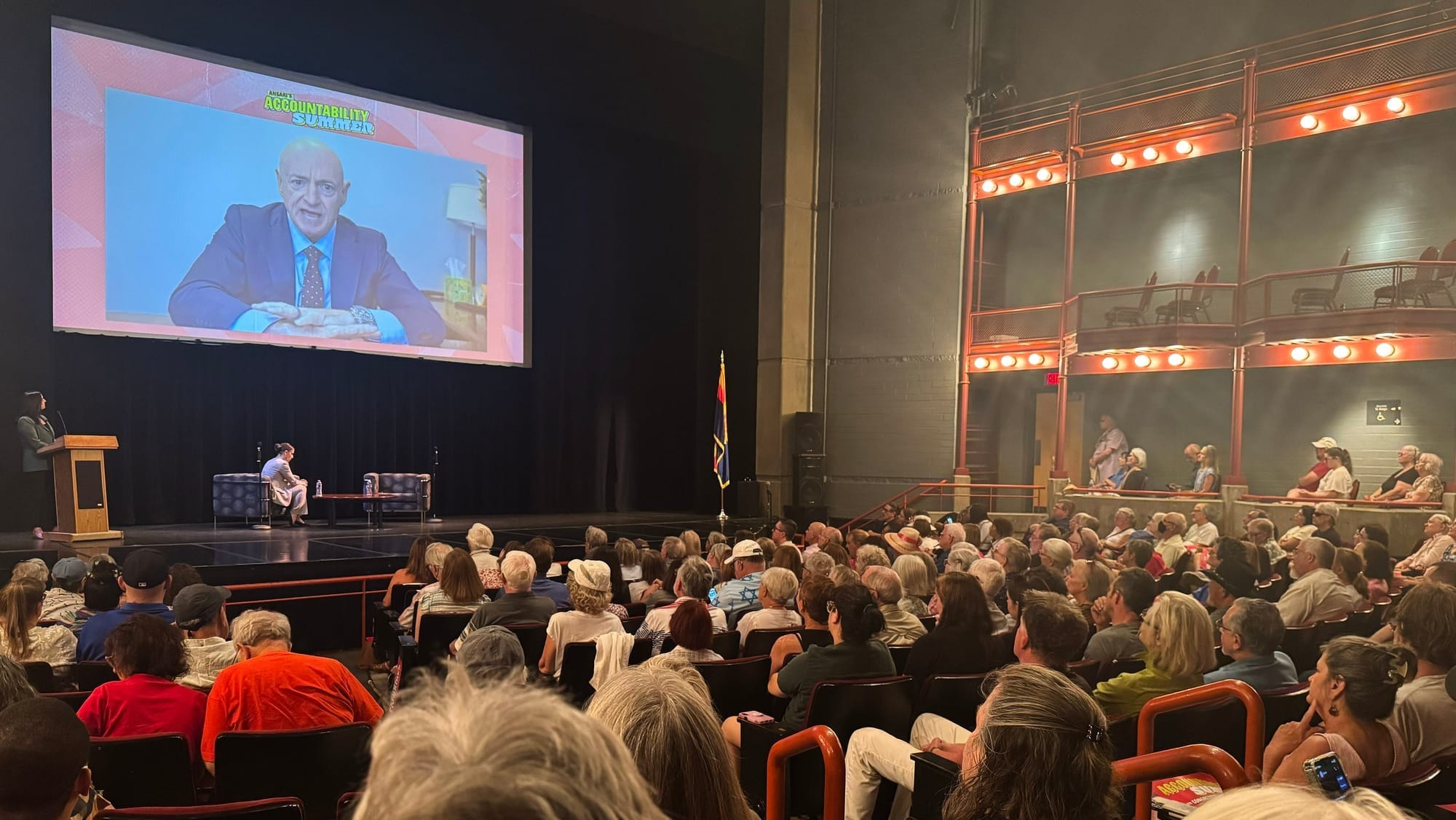
U.S. Sen. Mark Kelly was scheduled to speak during the event, but he was unable to attend after being stuck in Washington, D.C., over the weekend, as the Senate tries to address the backlog of executive branch nominees.
“I can't be there to hold Republicans accountable, but you can,” Kelly said via a video message.
Dr. Victoria Fewell, a clinical assistant professor at Banner University Medical Center and chair of the American College of Obstetricians and Gynecologists, talked about the budget bill’s impact on reproductive and rural health care in Arizona.
Fewell said that half of all births (in Arizona are covered by the Arizona Health Care Cost Containment System, the state’s Medicaid program.
She spoke about a patient, Maria, who developed postpartum depression, lost her Medicaid coverage and died by suicide.
“This is not just a policy issue, it is a crisis that will compound our current rising maternal mortality rates,” Fewell said, urging voters to choose their representatives carefully in the 2026 midterm elections.
Retired U.S. Air Force Colonel Patrick Deconcini said many former service members oppose both President Donald Trump’s conduct and the support he receives from politicians like Ciscomani, whom he accused of backing an undemocratic agenda.
He also criticized the Democrats’ infighting on issues including Palestine, transgender rights, economic development and military spending, urging them to unite against authoritarianism.
“We in the Democratic Party have a huge responsibility,” Deconcini said. “We are the resistance. We are the shield against authoritarianism.”
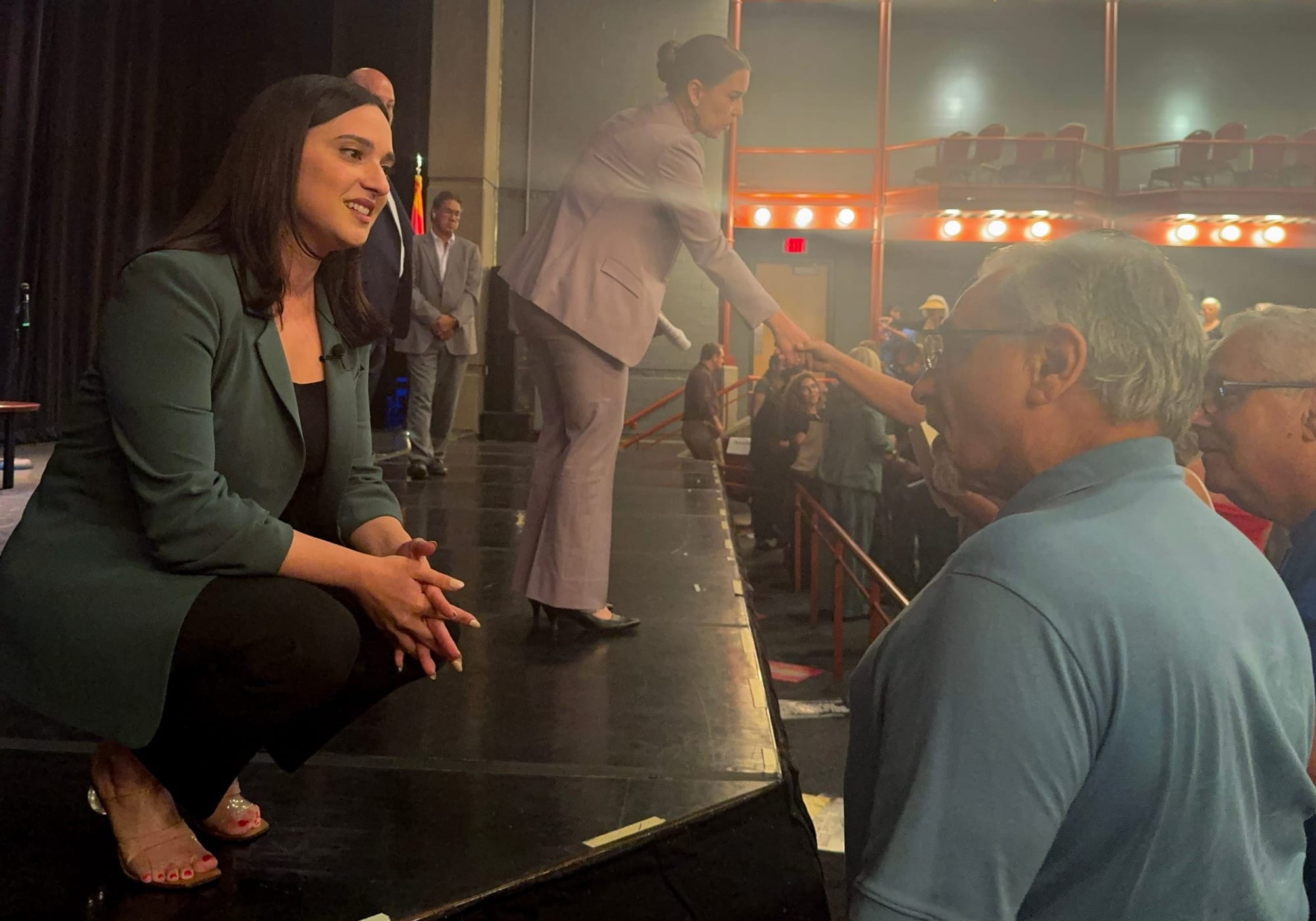
Adam Sarvana, a former aide to the late Congressman Raúl Grijalva, said all these issues are connected, especially when it comes to health care and climate.
Sarvana said that South Tucson has become a case study for researchers and that psychologists travel to the University of Arizona specifically to examine the mental toll of living in a place surrounded by water pollution and PFAS. The current climate is the result of political leaders ignoring the community for decades as people got sick, Sarvana said.
“Eventually, 20 years go by and people are studying how psychologically damaged your children are, because nobody listened to you,” Sarvana said.
Sarvana’s closing remarks shifted the focus from policy to purpose, emphasizing that until a world rooted in justice is built, the work must go on.
“It's not that we fixed war, we fixed hunger, we fixed poverty, it's that we haven't yet built the world we want to live in,” he said. “Until we do that, what are we all doing here?”
Ryan Amir Kashanipour, a UA history professor and a labor organizer with Communication Workers of America attending the town hall, brought up ICE immigration enforcement activity in communities across the state, asking Conover if ICE agents are acting within the law and what community members can do if they are not.
“The Trump regime is breaking the law every single day,” Ansari said, describing a recent visit to the Eloy detention center, where detainees reported abuse and racism. “They are nothing short of concentration camps. It's going to be a stain on our country's image and reputation.”
Conover agreed that everything that is happening is illegal but said her office can’t help unless they’re aware of the illegal acts taking place.
“Where there is illegality, we need that constant reporting,” Conover said. “We need you to reach out. You can do so to our offices privately if it feels unsafe publicly.”
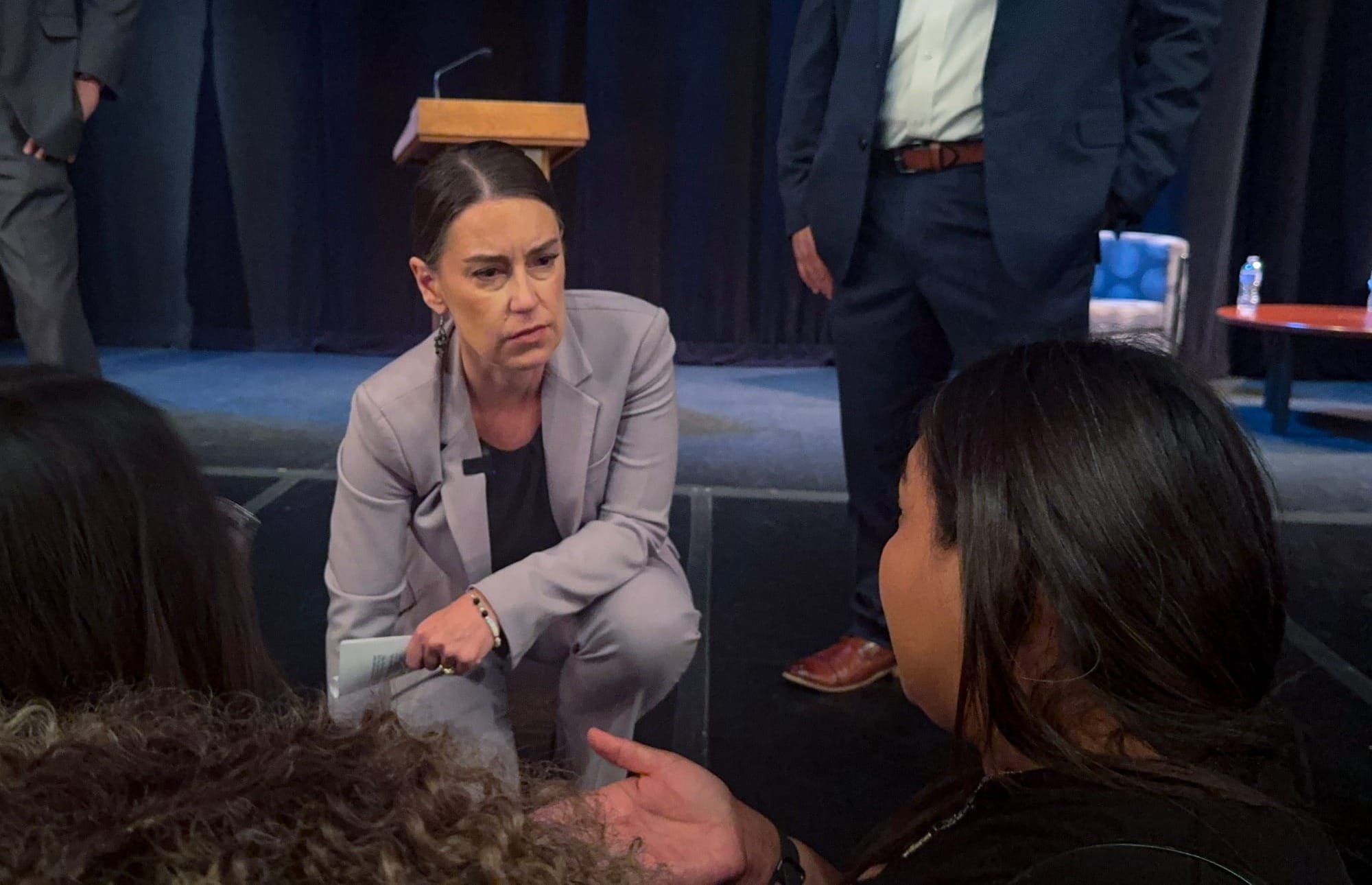
Conover also directly criticized law enforcement officers wearing masks.
“As a sibling of career local police, the masking is just unacceptable,” she said. “How can we know that they are acting lawfully, rather than imposters?”
Another attendee, Claire Benson, questioned the U.S.’s continued support for Israel, citing concerns from the Jewish community and Tucson’s connections to Raytheon.
“There's no question that this is a moral stain on the world, and I'm every day looking at actions that I can take to make sure that a surge of humanitarian aid gets into Gaza,” Ansari said.
She said she’s currently working on bills that allow humanitarian aid to Gaza and punish people who are harming Palestinian groups. She called out Trump for finger-pointing and ramping up the stakes of the war among Republicans.
“I care deeply about this issue, but just like, and I see very clearly that, just like Hamas is a barrier to peace, so is Prime Minister Netanyahu, so we will continue to work,” Ansari said.
The town hall concluded with questions about immigration and safety. Both Ansari and Conover reiterated that the community can help by reporting illegal activities, volunteering with supportive organizations and coming together to combat authoritarianism.
“We cannot win this election without getting out of our echo chambers,” Ansari said. “We cannot bring people to our side without having conversations with them and talking to them and communicating with them.”
Emma LaPointe is a journalism, political science and German Studies major at the University of Arizona and Tucson Spotlight intern. Contact her at emma.m.lapointe@gmail.com.
Tucson Spotlight is a community-based newsroom that provides paid opportunities for students and rising journalists in Southern Arizona. Please consider supporting our work with a tax-deductible donation.


